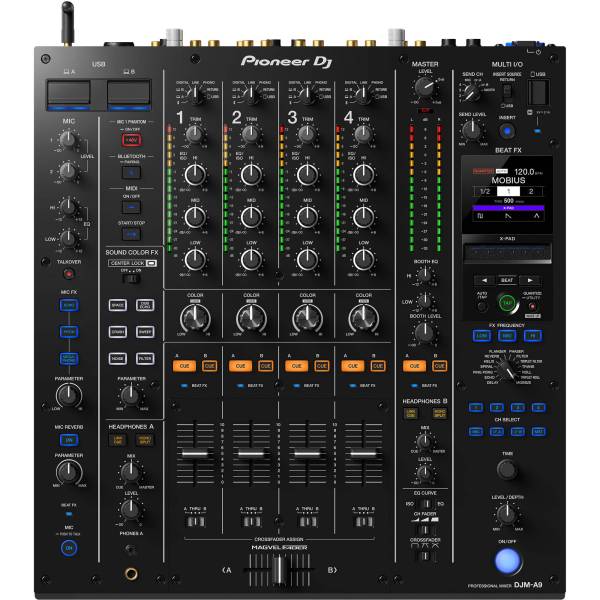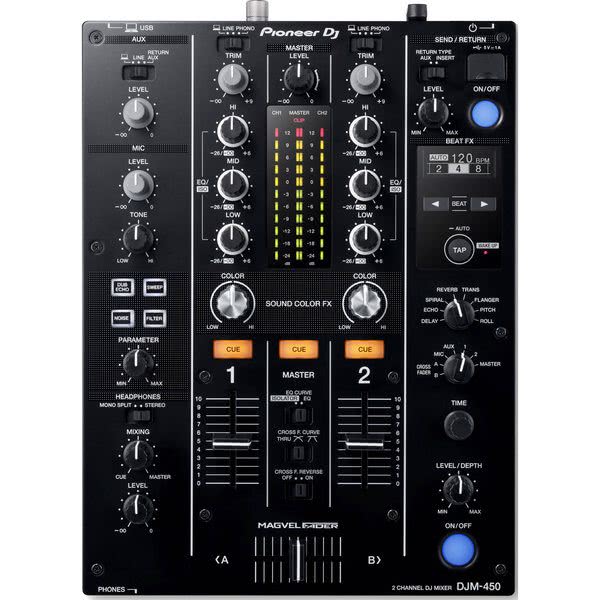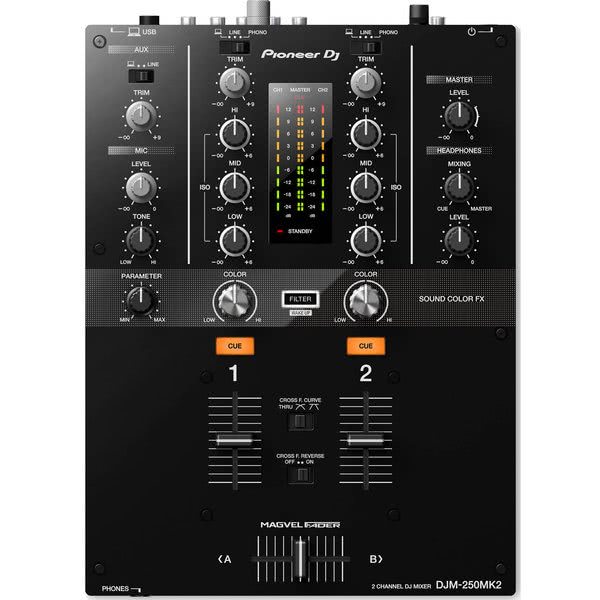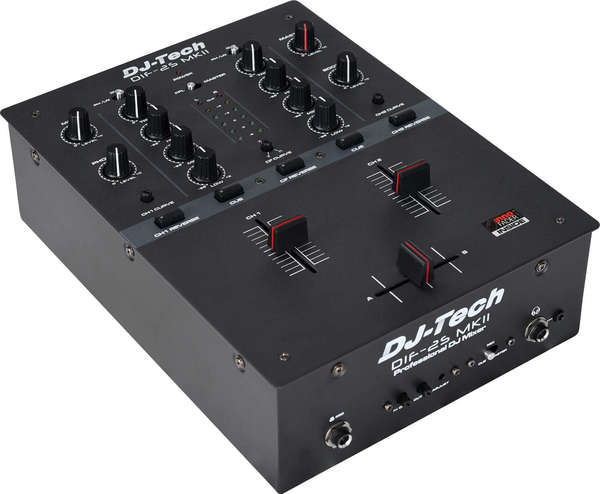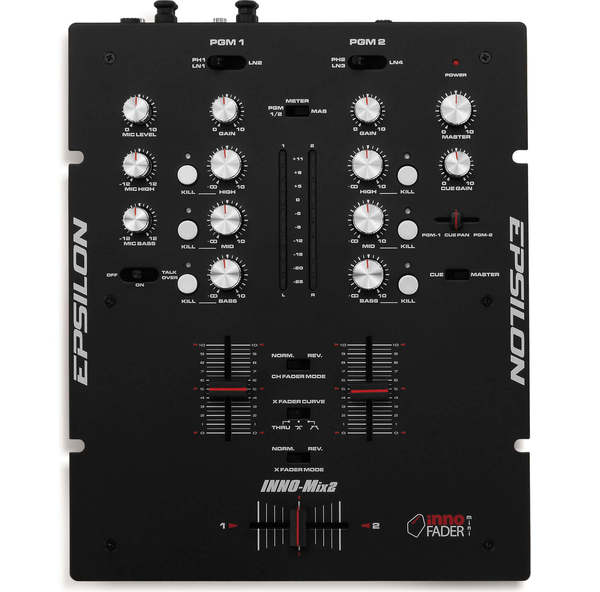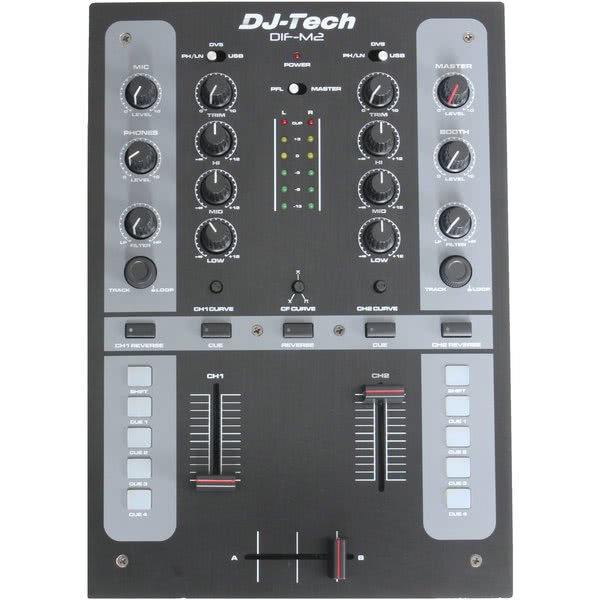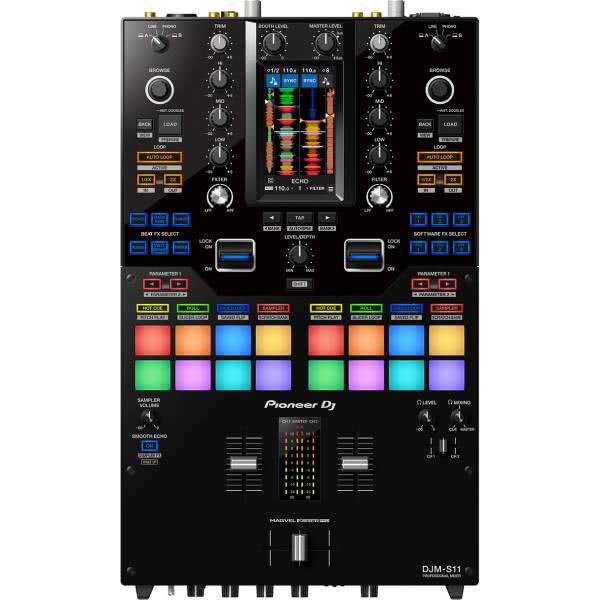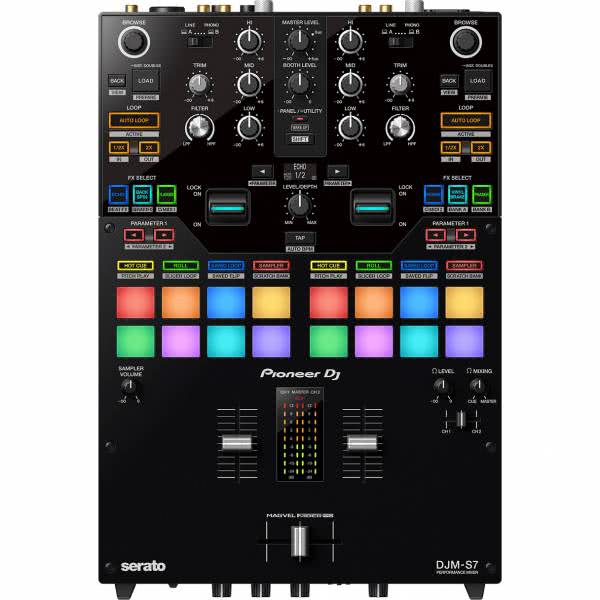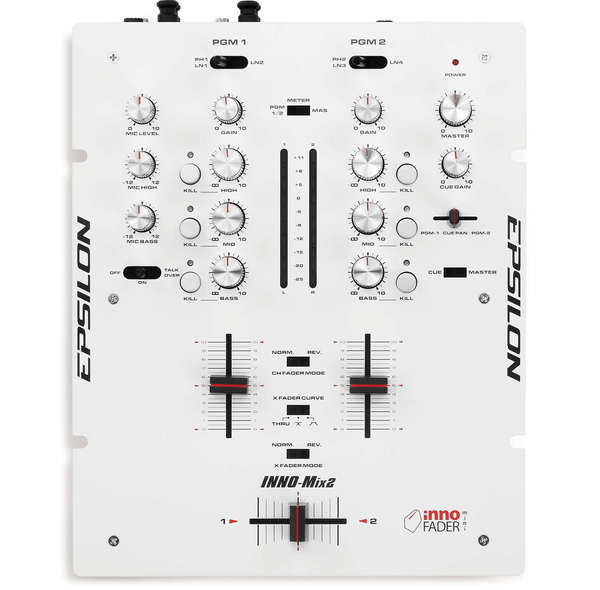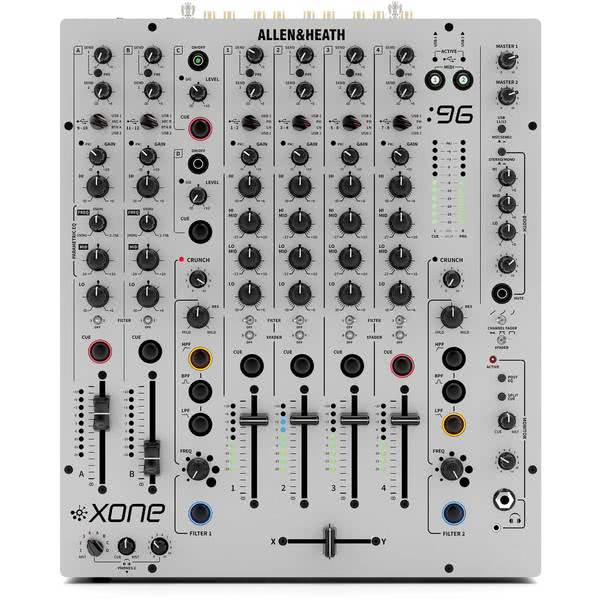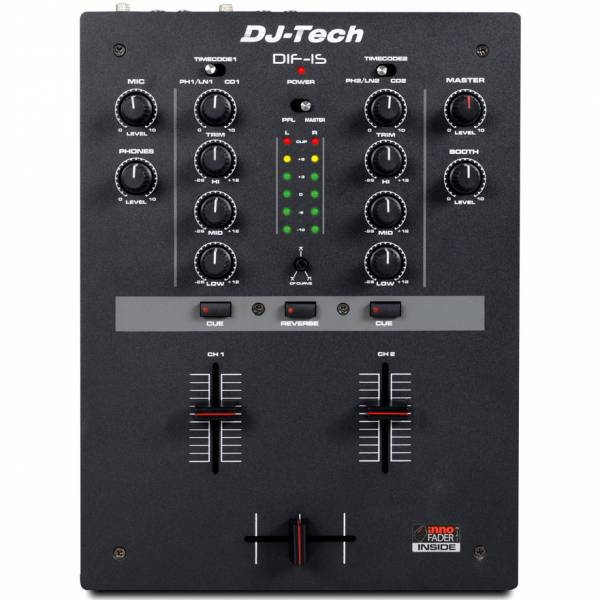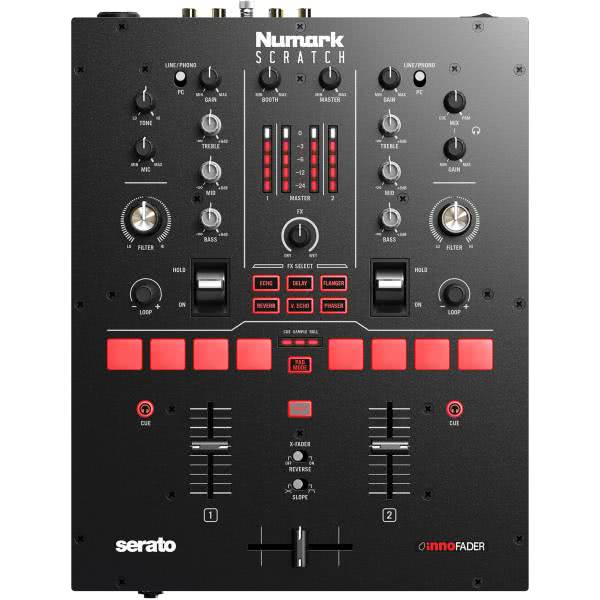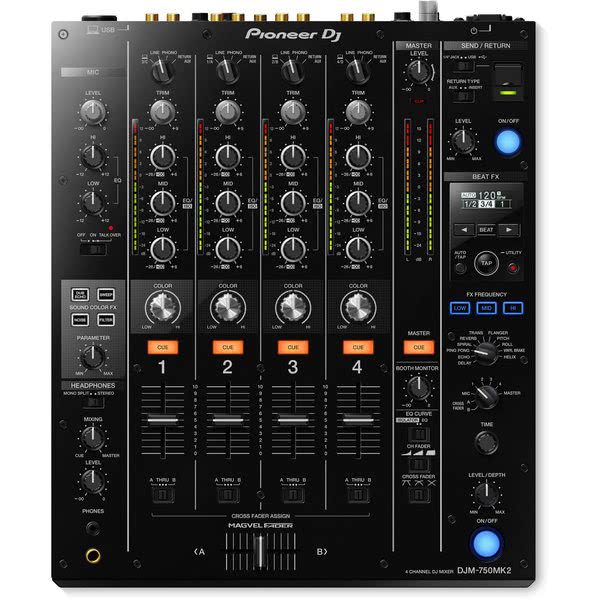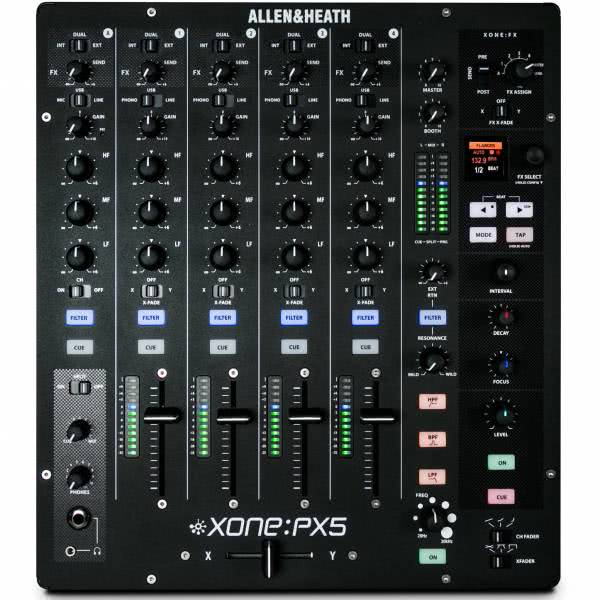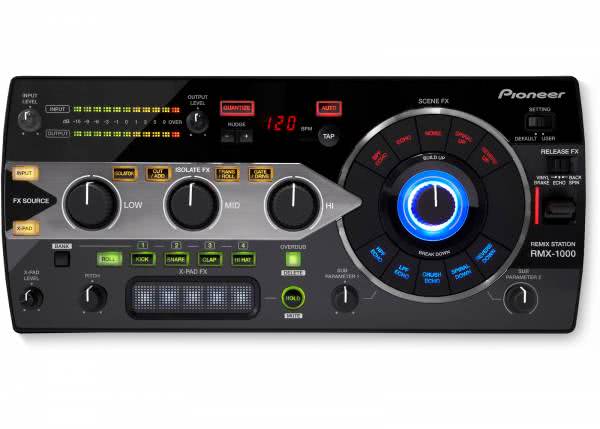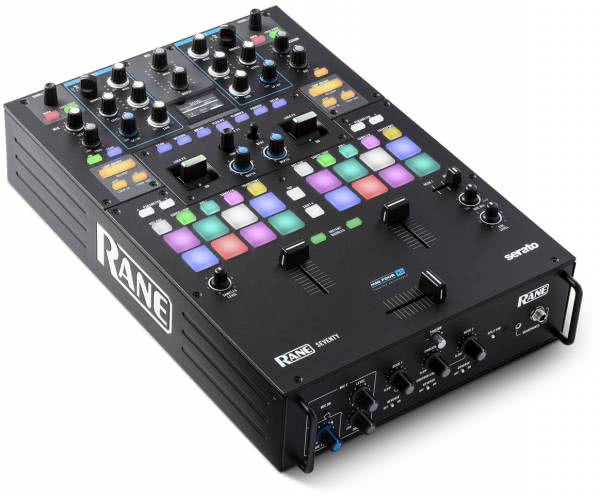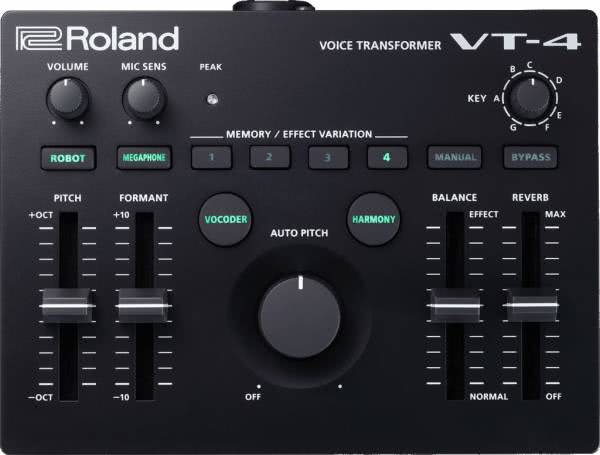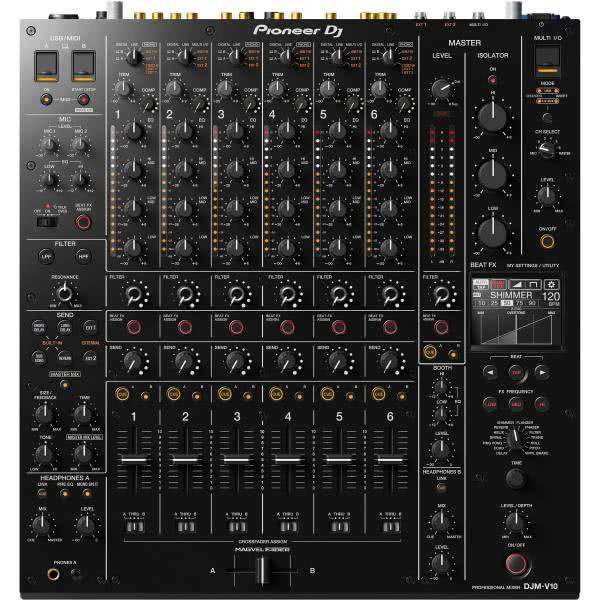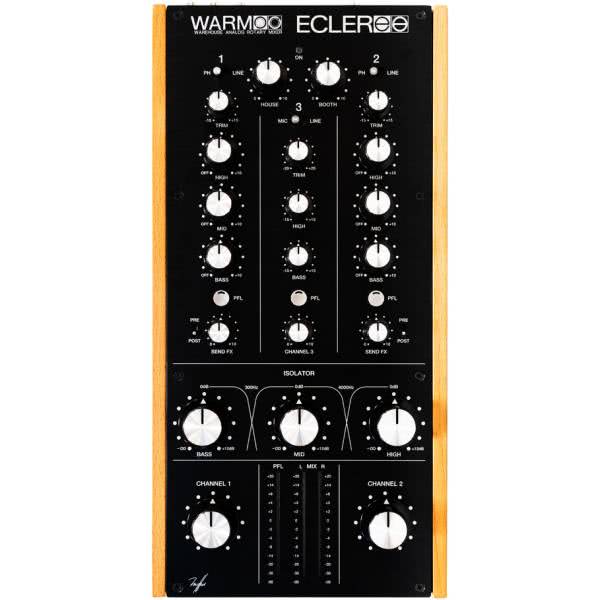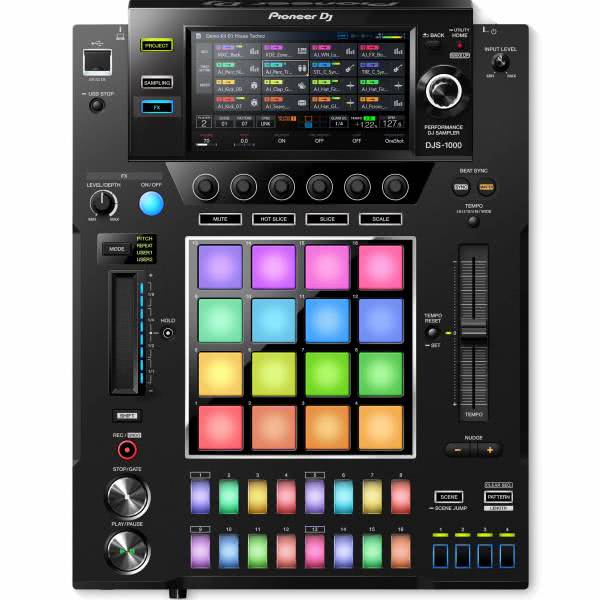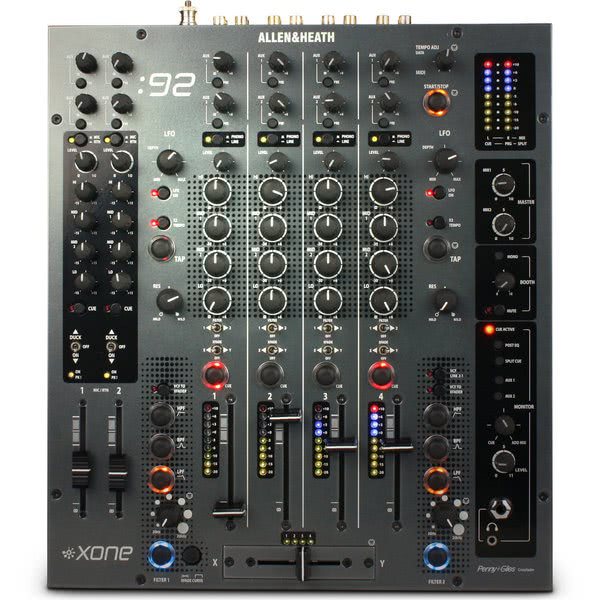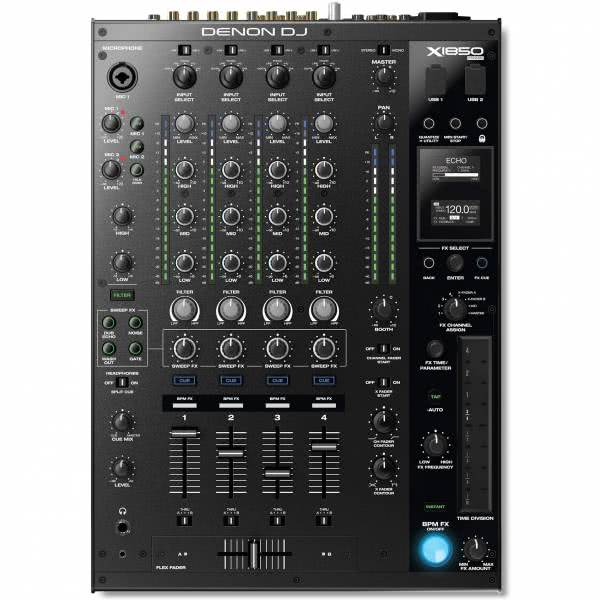Whether you're a beginner, intermediate or professional, there's a DJ mixer for everyone. With a DJ mixer, at least two audio sources are connected to mix tracks and songs into each other. For this purpose, a crossfader is available, which crossfades from one channel to the other.
However, there are many variations on the theme of mixers - so there are inexpensive versions with 2 channels from about 100 €, which cover the basic functions, up to 4-5 channel mixers with several functions and its own touch screen display in the mid 4-digit range.
Which DJ mixer can be the right one for you, you will find out in this article.
Channels, features and functions
crossfader on the mixer as a DJ mixer for beginners is best suited to a small mixer with 2 channels, because the many knobs and controls are usually confusing at first and as a starter you quickly lose the overview. 2 channel mixers with short crossfader are also suitable for battle DJs where the focus is on scratching. These are therefore also called battle mixers, since it is especially there on speed depends with which the corssfader can be moved within a short time.
With a 2 channel DJ mixer, you can first learn the basics and then later switch to one with more channels. However, some DJs don't even need more than 2 channels and, depending on the music genre, don't even need a mixer with more than two channels. Even a well-equipped 2 channel mixer can be sufficient for a professional DJ, especially since the new generation can also be integrated deeply into existing software. Via USB port, the mixer is connected to the software and acts as an audio interface or can even be used as a midi controller.
Here the question arises as a beginner, which features and functions will be needed later and which one will definitely not need. The cheapest way to start is with a purely analog mixing console that may also have an audio interface on board. Here you can get decent quality for as little as €150 and can learn mixing and editing from scratch.
If you want full flexibility, analog digital mixers are the right choice for you. Here analog inputs are combined with all the digital possibilities to give you the best of all worlds. For example, you can play classic with turntables, digital with turntables and control vinyl, or completely digital by simply connecting 2 CD players.
If you play live at small or larger festivals or clubs, it's worth getting to know Pioneer's NXS series. In fact, these DJ mixers are available there 95% of the time and you should be able to work with them. These have become a club standard in recent years and can be found at all gigs worldwide.
Effective DJing
effects on dj mixers another criterion that a DJ mixer must fulfill is the provision of effects. This is where the wheat is separated from the chaff, because not every manufacturer can pack proper effects processors into the hardware in the same way.
The decisive factor is not the number of effects, but how they sound in the end. Reverb effects in particular are subject to extreme fluctuations in sound. The following effects should be offered by the mixing console in any case:
- Reverb - A decent sounding reverb that should be adjustable with parameters.
- Delay - A delay effect that should be adjusted to the current tempo by means of BPM.
- Flanger - Has become a standard effect and provides for real echo effects - ideally to the tempo per BPM.
Other gimmicks and wacky effects like pitch, sweeps FX and more can also enrich the live set depending on the genre. But primarily you have to pay attention to a decent quality of the main effects.
Which manufacturers are recommended?
Many of our customers prefer a mixer from Pioneer. This manufacturer convinces with their high-end products and are used by the best DJs in the world. They have become the standard and in every larger club or event there are mixers from Pioneer. The operation is logically designed and other manufacturers are oriented to them.
Those who like it cheaper can reach for a Behringer mixer. These convince, in addition to their low price, especially by their high functionality and numerous features. DJ mixers from Mixars can also convince with a balanced quality and workmanship at a fair price.
In the premium segment, there are Allen & Heath mixers. They can score with their first-class sound quality, high robustness and their high processing quality.
But also especially Denon and Rane provide an attractive range of DJ mixers that are more than worth a look and can convince with sophisticated features and functions all along the line.

